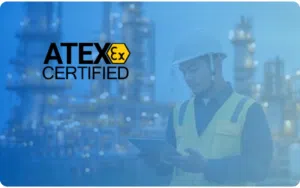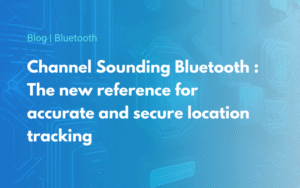Calibration certificate, what international value?
Reading time
Level

How can I be sure that a calibration certificate is valid throughout the world? Which organization to choose?
Manufacturers and users of measuring tools, whether connected or not, must ensure that their equipment complies with the regulations in force. Although regulations may vary from country to country, there are international standards that allow for standardization of standards and test methods. In this article, find out how to recognize a trusted organization that will ensure international validity of the calibration certificate.
Calibration certificate, what to remember ?
What is a calibration certificate?
A calibration certificate for measuring instruments is an official document that describes the measurement characteristics of an instrument defined in relation to a reference standard. In practice, the measuring instrument is compared to a standard. For each test point (typicaly a temperature), the value displayed by the instrument, the value provided by the standard and the uncertainty of error are noted. This is translated into a numerical result. At the end of this analysis, a calibration certificate is issued by a certified laboratory.
What is the difference between an “accredited” or “connected” calibration certificate?
In the jargon of metrology, there are two types of calibration certificate: “accredited” and “connected”. To be more precise, an “accredited” calibration certificate can only be performed by a metrology laboratory that has been audited to the ISO/IEC 17025: 2017 standard and is able to present its accreditation certificate. A “connected” calibration report can be performed by any type of metrology laboratory or service, without the need to comply with ISO/IEC 17025: 2017, however this is done using a standard thermometer that has itself been the subject of an “accredited” calibration.
Only the certificate accredited according to ISO / IEC 17025 : 2017 is valid internationally. In this article, we explain what this standard consists of and the keyreference organizations.
The ISO/IEC 17025 : 2017 standard, for a harmonization of the calibration
Framing calibration laboratories within the ISO/IEC 17025 : 2017 standard
ISO (International Organization for Standardization) has written and published the ISO/IEC 17025 standard to provide a framework for calibration testing that allows laboratories to demonstrate their competence and ability to produce valid results.
The standard also helps to facilitate cooperation between laboratories and other organizations to ensure that certificates and test reports are recognized from one country to another without the need for retesting.
Who is ISO/IEC 17025 intended for?
This standard is intended for all organizations performing tests, calibrations or sampling and wishing to obtain reliable and internationally recognized results. It is intended for laboratories, universities, research centres, regulatory bodies and certification bodies.
To this end, national and often public accreditation committees have the authority to audit and issue an attestation certificate to the ISO / IEC 17025: 2017 standard. This is the case of COFRAC in France, or DakkS in Germany for example.
The Accreditation Committee issues an accreditation certificate to the metrology laboratory according to the ISO/IEC 17025: 2017 standard for a specific type of measurement (e.g. temperature measurement) and for a specific period (often 4 years). This attestation is available online on the committee’s website and must be issued by the metrology laboratory that has produced the “accredited” calibration certificates.
Who can attest that a laboratory complies with the ISO/IEC 17025 : 2017 standard ?
The list of accreditation committees recognized by ISO and having the capacity to perform an accreditation attestation according to the ISO : IEC 17025 standard is available here.
Here are some of the accreditation committees that have this capacity:
- NATA , Australia
- IANZ, New-Zeland
- BELAC, Belgium
- SADCAS, South Africa
- SCC, Canada
- COFRAC, France
- Dakks, Germany
- ACCREDIA, Italy
- RvA, Netherlands
- IPAC, Portugal
- GAC, Middle-East
- SAC Singapore
- ENAC, Spain
- SAS, Switzerland
- A2LA, USA
All of the above-mentioned accreditation committees or laboratories have joined together to form an international organization whose purpose is to standardize metrology practices throughout the world: ILAC.
International recognition by ILAC -MRA
ILAC, the International Laboratory Accreditation Cooperation, is a program of cooperation between national accreditation committees. ILAC is at the origin of an international agreement on the mutual recognition of the ISO/IEC 17025: 2017 standard: the MRA “Mutual Recognition Arrangement”.
The ILAC MRA gives worldwide validity to a calibration certificate that is performed and issued by a metrology laboratory with an accreditation certificate according to ISO/IEC 17025: 2017. This worldwide recognition is intended to promote international trade with the objective of free trade.
In conclusion
An “accredited” calibration certificate issued by a metrology laboratory that can attest to compliance with ISO/IEC 17025: 2017 and is valid worldwide. On the calibration certificate, the logo of the accreditation body or committee must appear. The accreditation certificate issued by the accreditation committee to the metrology laboratory must indicate the period of validity of the accreditation.



